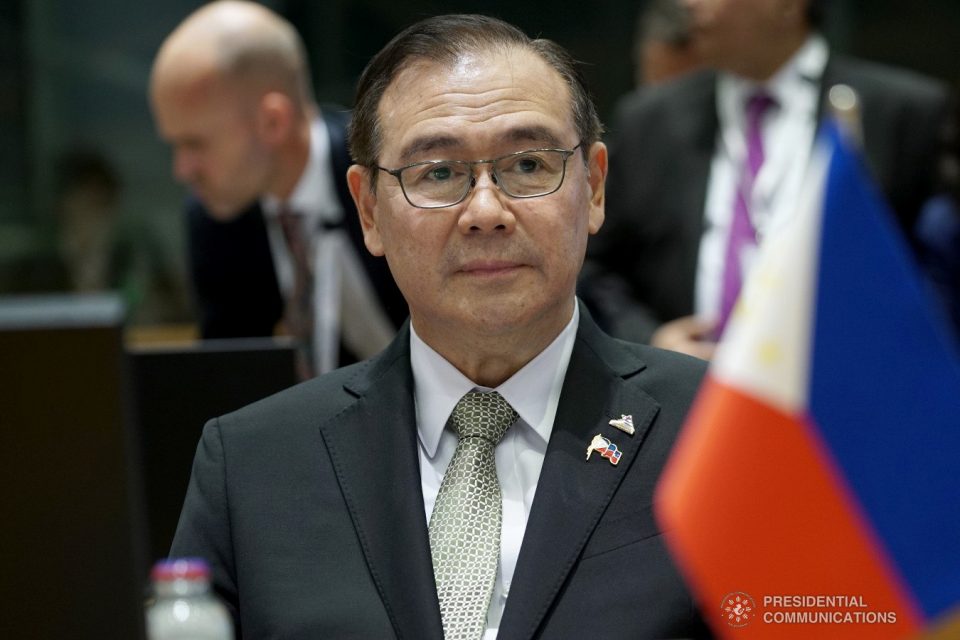
14 states , including Philippines, reject Iceland-authored resolution
(Eagle News) – The Philippines, along with 13 other countries, rejected a United Nations Human Rights Council resolution pushed by Iceland and other Western nations that sought a comprehensive written report on the Philippine drug war under President Rodrigo Duterte.
Foreign Affairs Secretary Teodoro Locsin Jr was scathing in his statement read after the UN human rights body voted in favor of a draft resolution pushed by Iceland and more than two dozen countries for a comprehensive review and written report on the drug war.
“Do not presume to threaten states with accountability for a tough approach to crushing crime, at which some of your countries are complicit at worst and tolerant at best. You don’t have the wherewithal, so all you can do is insult. The United Nations is a collection of sovereignties and not a sovereign collective,” he said.
“Thus, the Philippines rejects this resolution. It cannot, in good conscience, abide by it. We will not accept a politically partisan and one- sided resolution, so detached from the truth on the ground. It comes straight from the mouth of the Queen in Alice in Wonderland, “First the judgment, then the proof.”
He said the UNHCR resolution’s validity was “highly questionable” as it was “not universally adopted.”
Eighteen countries — mostly Western nations — voted for it, 14 countries of the 47-member council voted against it, while 15 other nations abstained.
The 14 countries which voted against the resolution are Angola, Bahrain, Cameroon
China, Cuba, Egypt, Eritrea, Hungary, India, Iraq, Philippines, Qatar, Saudi Arabia and
Somalia.
“This resolution was not universally adopted. Therefore, its validity is highly questionable. It does not represent the will of the Council, much less that of the developing countries who are always the target of such resolutions,” Locsin’s statement read.
-“There will be consequences,” says Locsin as Western countries pushed for resolution-
The Philippine foreign affairs chief derided the Western countries’ “arrogance” pushing for the resolution, and warned of consequences.
“Western countries pushed for this resolution in the confidence that the world has forgotten what they did and what should have been done to them had there been a Human Rights Council. It was pushed with the arrogance that developing countries must not stand up to them even if we can and as we hereby do. There will be consequences.
The 18 countries which voted for the resolution were the following: Argentina, Australia, Austria, Bahamas, Bulgaria, Croatia, Czech Republic, Denmark, Fiji, Iceland, Italy, Mexico, Peru, Slovakia, Spain, Ukraine, United Kingdom of Great Britain and Northern Ireland, and Uruguay.
Locsin said that these countries which approved the Iceland led resolution “sought to bring a people and a country, with an unblemished human rights record, down to the level of the authors of atrocities the world must not forget: of Amritsar, Mau Mau and the Boer War; Ragawede and the murder of Anne Frank and her kind; the trendsetting holocaust of the Congo; the profiling of Romani people; the massacre of aborigines at Forrest River; the culmination of Leopold’s Ghost in Bergen-Belsen to name one of a sprawling network of extermination camps; slave trading in the West Indies and the abduction of Inuit children as part of the eradication of that race’s way of life; Addis Ababa and the invention of death from above (though that distinction is shared with the author of Amritsar); Setif and the drowning of North Africans in the river Seine; the cowardice of European UN peacekeepers who stepped aside to allow the massacre of those they had herded together for their safety; the dissolution and consequent anarchy of North African and Middle Eastern countries, and the revival of the slave trade from there; and the callous expulsion of refugees crossing the Mediterranean to escape the European miscalculation.”
-Locsin: UN mandate “weaponized-
With the adoption of the resolution, Locsin, said that those which voted for the resolution had “weaponized” UN’s mandate. He recalled how the Philippines, along with 50 other states, had helped create the United Nations 45 years ago.
“We helped create the UN to honor the universal values of respect for sovereignty and non-interference in the internal affairs of state which were brazenly and brutally violated on a global scale by those who censured us today. There is too the value of dialogue which is violated by the high-handed insistence that it be one sided while the other side keeps quiet, the latter to speak in its defense but only in proceedings dictated by the former to ensure its agreeable result.”
“In the process leading to the adoption of this resolution, we have witnessed the very opposite of these values that hold the UN together. We have seen its mandate ‘weaponized’ for the sake of interests with the evident means to get it done,” he said.
The Philippine foreign affairs chief said that the Philippines was “affronted” with the vote of the Western countries which were “authors” themselves of various “atrocities.”
“The Philippines is affronted that we should be named with the very breath of these authors of these atrocities, the same ones so bold to condemn us – we who opened our arms to save their victims before the War, and well into the savage wars of peace culminating in the Vietnam War to whose victims we gave shelter when everyone else turned them away,” his statement read.
He said that the resolution was “not a triumph of human rights but a travesty of them.”
Nonetheless, Locsin said that the Philippines “must remain true to the cause of human rights.”
“We will continue to work in the Council to advance a noble mandate to respect, protect and fulfill human rights, and rescue it from its misuse,” his statement said.
(Eagle News Service)








